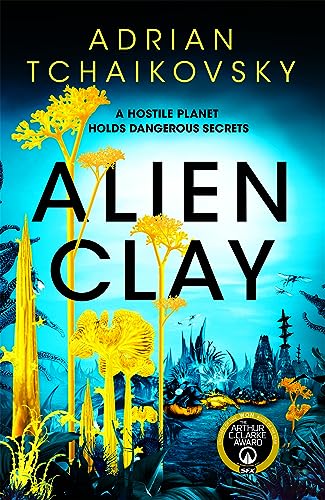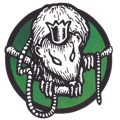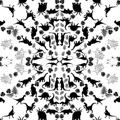Estuvo mágico leer en secuencia "Surviving Daybreak" (que ni le he dicho al bookwyrm por que no hay registro), "An unkindness of ghosts" y "Alien Clay". Las tres tocan temas parecidos, pero la de Daybreak es malísima, puro god-mode del autor, la protagonista siempre al borde del colapso se detiene a aclarar que es asexual y se las tiene que ver con la flora y fauna de un planeta alienígeno. La de los ghosts también es de sexualidad divergente, no hay planeta pero sí condiciones de cárcel. La de alien clay tiene condiciones de cárcel y flora y fauna alienígena. ¡vaya!
De las tres esta es la más interesante.
Creo que la idea de Chaikovski es tomar la lectura cooperativista de la evolución de las especies y desplazarla miles de millones de años hacia el futuro. El resultado: fusión extrema de organismos. Hm, o parecido a lo que describen Lynn Margulis et al, supongo, cuando dice: cuál cuál puro consorcio de bacteriaaaas. Pero este como que a nivel órganos.
En una escena espeluznante hieren a un bicho grandote como elefante, por el tajo que abre su costado se alcanzan a ver las patas de unos bichos que viven dentro suyo, órganos dél, afanados reparando la piel dañada desde dentro.
Pero bonita la idea, como la del Tao Te Ching, creo, o tal vez un falso koan del art of unix programming: lo que se opondría a ti ahora tiene que ser como tú.
O tal vez el cristiano amor por el enemigo. Tons llegan estos terrícolas y ya los conoces, todos colonialistas, y se creen que bajo sus domos y con sus filtros de aire pueden mantener a raya la biota de sus colonias. Pero nel: las colonias los contracolonizan A NIVEL MOLECULAR. Ajá, por que cuando un planeta tiene vida por tanto tanto tanto tiempo ps la evolución da con TODAS las formas posibles, la biología molecular terrícola es principiante, es novata.
Y la biología molecular del planeta alien ya se las sabe. Para cualquier función vital: hay otro bicho que lo hace mejor que tus órganos. Hasta se menciona un par de casos así, en la biología terrestre, y nomás recuerdo uno que también está espeluznante: hay un pescadito parasitoide, bien especialista, que se come la lengua de su hospedante pero luego se queda en funciones de lengua. Siempre le toca alimento, pero también tiene que ayudar a poner comida en las fauces por que si no se le muere el raite.
Bueno y en esta historia da mucho gusto que esa mentalidad (molecular, por que la Vida entera es un proceso mental) triunfa sobre la de los carceleros que son, pues, carceleros, odian la libertad, etc.
No tan deslumbrante como Children of Time. ¡Pero bastante buena!




